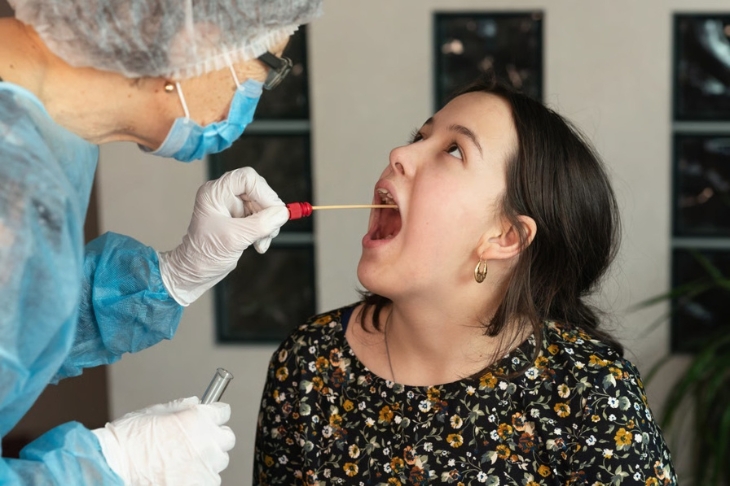Oral cancer is a serious condition that can often go undetected in its early stages. However, with regular oral cancer screenings, it’s possible to catch it early and improve the chances of successful treatment. This simple yet essential screening can save lives. This blog will explore why oral cancer screenings are necessary for your health.
What is Oral Cancer?
Oral cancer refers to cancers that develop in any part of the mouth, including the lips, gums, tongue, cheeks, and the roof or floor of the mouth. It can also spread to nearby areas, such as the throat. Like most cancers, oral cancer is most treatable when detected early. Unfortunately, many cases are not identified until the cancer has reached an advanced stage.
Early Detection is Key
The main reason why oral cancer screenings in Katy are essential is because they help detect the disease in its earliest stages. When caught early, oral cancer is more likely to be treatable. Early treatment can lead to higher survival rates and fewer complications. Oral cancer screenings are quick, painless, and non-invasive, making them easy to incorporate into regular dental visits.
During screening, your dentist will carefully examine your mouth for signs of abnormalities, such as sores, lumps, or red and white patches. They will also check your throat, lips, and neck for swelling or changes. If something suspicious is found, further testing can be done to confirm the diagnosis.
Risk Factors for Oral Cancer
Confident lifestyle choices and habits can increase the risk of developing oral cancer. These include:
- Tobacco Use: Smoking or chewing tobacco significantly increases your risk.
- Excessive Alcohol Consumption: Drinking heavily can raise the chances of developing oral cancer.
- HPV Infection: The human papillomavirus (HPV) has been linked to oral cancers, especially in younger individuals.
- Age: People over the age of 40 are at a higher risk, although younger adults can also develop oral cancer.
If you have any of these risk factors, it’s even more important to undergo regular oral cancer screenings.
How Often Should You Get an Oral Cancer Screening?
It is recommended that adults over the age of 18 undergo an oral cancer screening during their routine dental checkups. If you are at a higher risk, such as a tobacco user or someone with a family history of cancer, you should consult with your dentist about more frequent screenings.
For most individuals, annual screenings are enough. However, if symptoms or changes occur in your mouth, you should seek immediate attention, even between regular visits.
Benefits of Oral Cancer Screenings
Oral cancer screenings are beneficial for several reasons:
- Early Detection Saves Lives: The earlier oral cancer is found, the easier it is to treat. Early detection often means less invasive treatments and a better prognosis.
- Prevention of Complications: Screening helps catch the disease before it spreads, reducing the chance of severe health complications.
- Peace of Mind: Knowing that your mouth and throat have been thoroughly examined for potential cancer can give you peace of mind.
What to Expect During an Oral Cancer Screening
An oral cancer screening is typically quick and easy. Your dentist will visually inspect the inside of your mouth and use their hands to feel for any lumps or abnormalities. The dentist will also examine your neck and throat. They may perform additional tests, such as a biopsy, to investigate further.
While the procedure is simple, it’s essential to your routine dental visits. If any signs of oral cancer are detected, your dentist will refer you to a specialist for further testing and treatment.
Protect Your Health with Regular Oral Cancer Screenings
Oral cancer screenings play a crucial role in maintaining your overall oral health. These screenings help detect early signs of cancer in the mouth, throat, and surrounding tissues—often before symptoms even appear. Early diagnosis significantly improves the chances of effective treatment and long-term survival.
By making oral cancer screenings a regular part of your dental checkups, you’re taking a proactive step in safeguarding your health. Your dentist is trained to identify unusual changes in the mouth, such as persistent sores, lumps, or discoloration, which could be early indicators of oral cancer.
It’s important to remember that oral cancer can affect anyone, regardless of age or lifestyle. However, risk factors like tobacco use, excessive alcohol consumption, HPV infection, and prolonged sun exposure to the lips can increase your chances.
Don’t overlook the importance of prevention—oral cancer screenings are quick, painless, and could potentially save your life. Schedule your next dental visit with confidence, knowing you’re prioritizing not just your smile, but your overall well-being.


